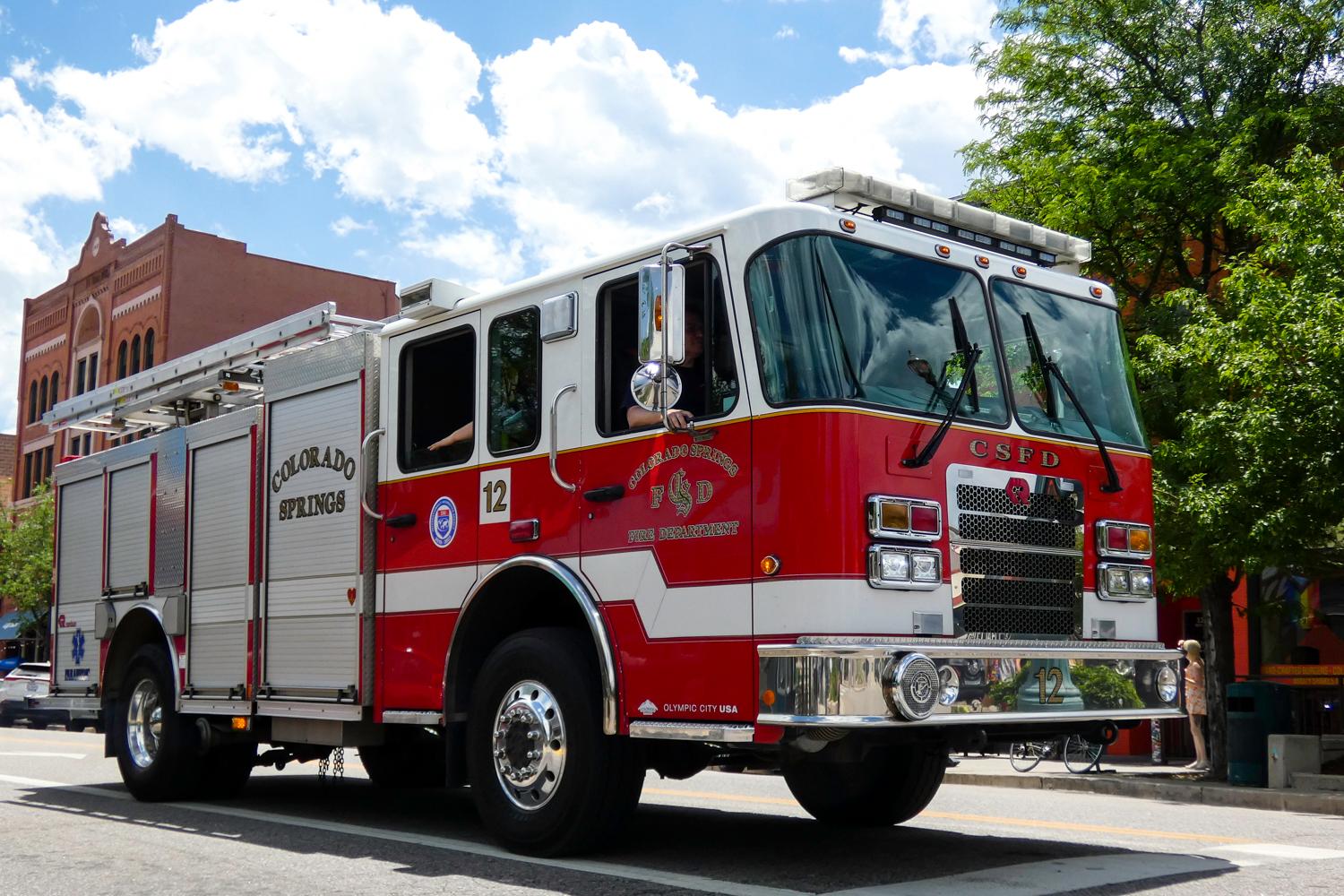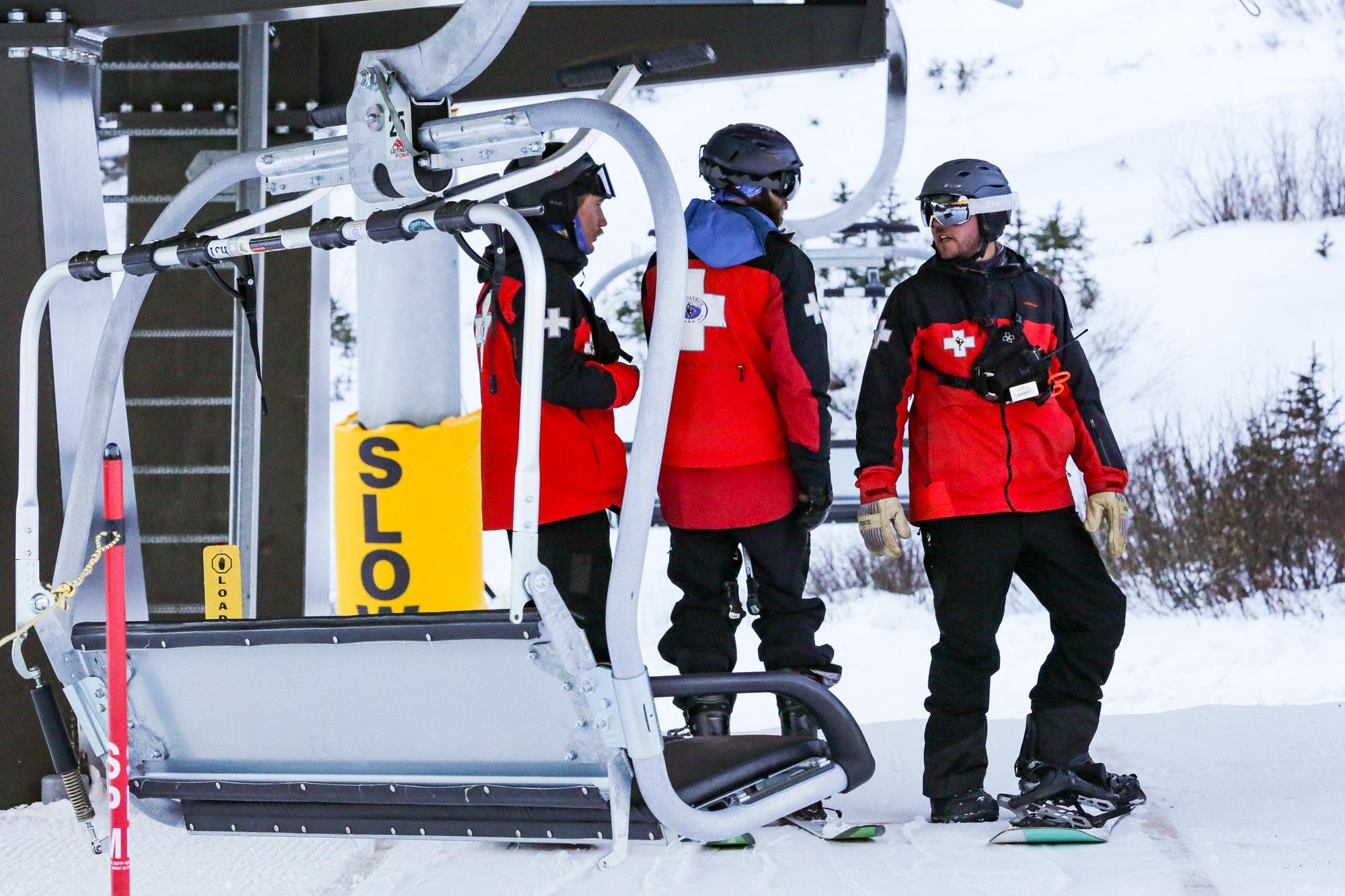
Updated at 12:45 p.m. on Monday, May 13, 2024
The Colorado Springs City Council will weigh a proposal from Colorado Springs Fire Department Chief Randy Royal that could create a city-operated ambulance service.
Currently, Colorado Springs contracts with American Medical Response, a private company, to run its ambulance services. That contract expires in April 2025 and negotiations to extend it have not been productive. City officials said AMR is requesting looser contract requirements or a higher fee to continue under current requirements.
Royal and Mayor Yemi Mobolade, alongside other local leaders, have been exploring whether to exit the contract early and instead pivot to a city-operated service.
“Our goal is to improve service delivery and response times, enhance innovative services already in place in our department, and reduce costs to citizens,” Royal said.
In a presentation during a City Council work session, fire officials said they’re looking to transition to a city-run system due to frequent issues with American Medical Response. A slideshow presented to the City Council said AMR has failed to meet various contract standards, namely arriving late to 33,000 calls.
“What the challenge is, [ambulance services] are essentially taking a patient from a hospital, to a [different] hospital to a nursing home,” CSFD Deputy Chief of Staff Ryan Trujillo told city councilors. “And there are times when those ambulances and inter-facility transfers can be deployed outside of our city away from those 911 emergencies.”
Under the proposed system, residents would continue to be charged for ambulance services, however, CSFD said base transport fees would be 26 to 30 percent cheaper than its private counterpart, with more likely to be shaved off depending on the patient’s insurance.
Opponents of the measure, including American Medical Response, told The Gazette the city’s plan falls short of the current system, and could fail to bring in the necessary revenue. The city initially plans to deploy an ambulance fleet that is smaller than AMR’s current fleet.
The proposal, which city councilors will discuss during a work session on Monday, would not require extra tax dollars to fund it — the city says funds collected from insurance companies and patients would fully fund the program. The proposal would charge between $1,750 and $2,050 for ambulance transport, depending on the level of care needed.
Switching to a city-run system would match Colorado Springs more closely with what other Front Range communities, including Denver and Boulder, offer. Like other areas, Colorado Springs would continue to contract with private companies to run less urgent health transport.
“Our goal is to improve service delivery and response times, enhance innovative services already in place in our department, and reduce costs to citizens,” Royal said.
Under the proposed system, residents would continue to be charged for ambulance services, however, CSFD says bills would be up to 47 percent cheaper, due in part to federal subsidies that private companies aren’t eligible for.
Opponents of the measure, including American Medical Response, told The Gazette the city’s plan falls short of the current system, and could fail to bring in the necessary revenue. The city initially plans to deploy an ambulance fleet that is smaller than AMR’s current fleet.
The proposal, which city councilors will discuss during a work session on Monday, would not require extra tax dollars to fund it — the city says funds collected from insurance companies and patients would fully fund the program. The proposal would charge between $1,750 and $2,050 for ambulance transport, depending on the level of care needed.
Switching to a city-run system would match Colorado Springs more closely with what other Front Range communities, including Denver and Boulder, offer. Like other areas, Colorado Springs would continue to contract with private companies to run less urgent health transport.









